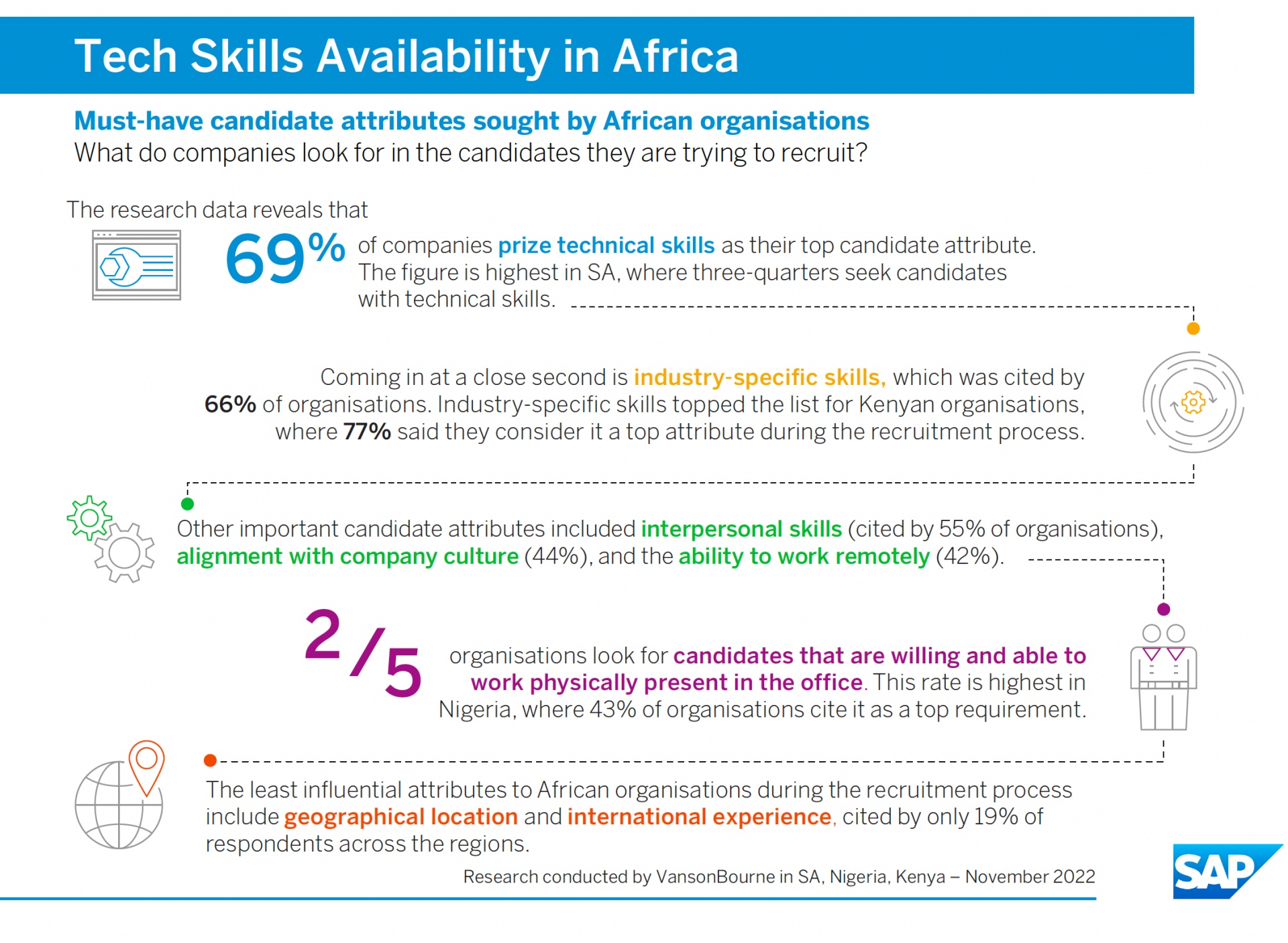- SAP has released the findings of its first tech skills scarcity report for Africa.
- The report looks at three countries in particular, South Africa, Nigeria, and Kenya, identifying the gaps and issues currently plaguing skills development on the continent.
- It found that four in five organisations surveyed reported some negative effect from a lack of tech skills.
Earlier today SAP held a media briefing to share its first report looking at the tech skills scarcity on the African continent.
The report specifically focused on the three major tech hubs during the fourth quarter of last year, namely South Africa, Kenya, and Nigeria, surveying organisations in each country as to the specific challenges and opportunities when it comes to tech skills availability.
Perhaps unsurprisingly the report does not paint a great picture when it comes to tech skills across the continent. To that end, some of the key figures shared by SAP include the fact that four in five organisations surveyed reported some negative effect from a lack of tech skills.
In fact 41 percent of organisations report that employees are leaving due to the pressures they experience as a result of understaffing. Furthermore, the inability to meet client needs, reduced capacity for innovation, and losing customers to competitors, are all factors cited as exaserbating the situation.
“Nearly all organisations expected to experience a tech skills -related challenge in 2023. More than two-thirds (69%) also said they expect to experience a skills gap in the year ahead. According to the data, the top skills challenge for African organisations is attracting skilled new recruits, although in South Africa the retention of skilled employees narrowly edged out attracting skills as the top challenge,” adds SAP in a press release shared with Hypertext.

In order to address these challenges SAP says that savvy organisations are taking significant steps to ensure they have access to the correct tech skills. Here it notes that 41 percent are upskilling existing employees as a top priority in 2023, while 40 percent are looking to reskill employees.
“Companies are also adopting technology tools and flexible work practices to ensure they can attract, retain and mobilise the correct mix of tech skills,” highlights Cathy Smith, MD of SAP Africa.
“Seven in ten organisations currently use a human capital management or employee experience tool, while nearly half (45%) of companies were open to remote work, although most want employees to be in the office at least some of the time. This new workplace dynamic will require leaders to co-create new models for work, with constant collaboration with employees to ensure alignment with company objectives and culture,” she points out.
As for how the tech skills scarcity can be approached across the technology industry in Africa, Smith is optimistic regarding the young population on the continent.
If focused on correctly, she believes the situation could be very different in future, provided all stakeholders take a vested interest in dealing with the tech skills shortage, and are willing to take risks on younger employees hungry for experience and opportunities.
“More than half of the world’s population growth between now and 2050 will take place in Africa, where 1.3-billion people are expected to be born by mid-century. With the correct investment in skills development, Africa’s economy could transition away from its reliance on natural resources to build the world’s future tech workforce, bringing untold economic and social benefit to the continent and its citizens,” she enthuses.

Here Smith stresses the importance that change management can play, especially in terms of digital transformation goals, which many a company is concerned with presently.
“Studies have shown that fewer than a third of digital transformation projects succeed, partly due to the fact that only 34% of change management projects are clear successes,” says Smith.
“For a continent that is rapidly transforming through the accelerated adoption of digital technologies, ensuring effective change management could greatly improve outcomes and equip organisations with new capabilities to drive growth and innovation,” she concludes.
While this is the first report that SAP has released on this subject matter, it will not be the last, with the potential to reevaluate the landscape in the next few years, as well as expand the survey to other countries on the continent. Hopefully when the next report is released, the statistics make for better reading.
To download and read the report for yourself, head here.
[Image – Photo by Adolfo Félix on Unsplash]

